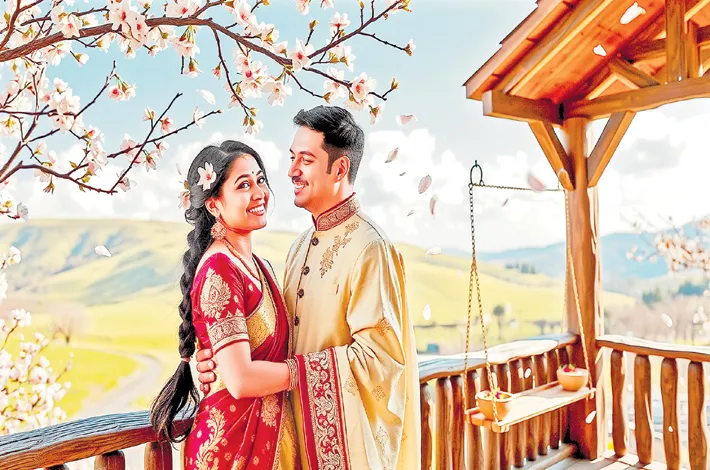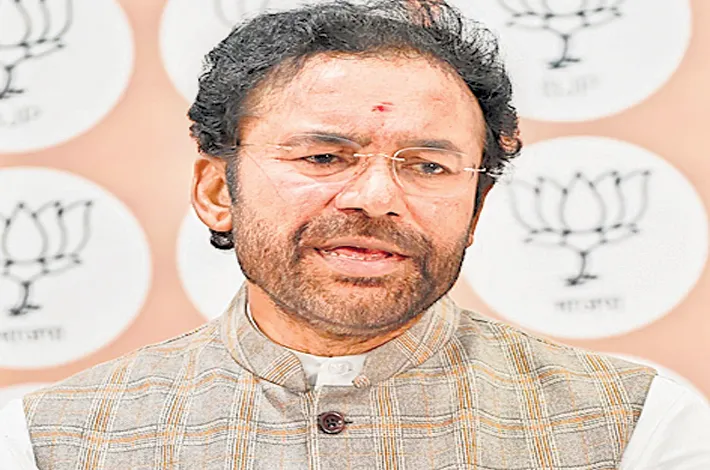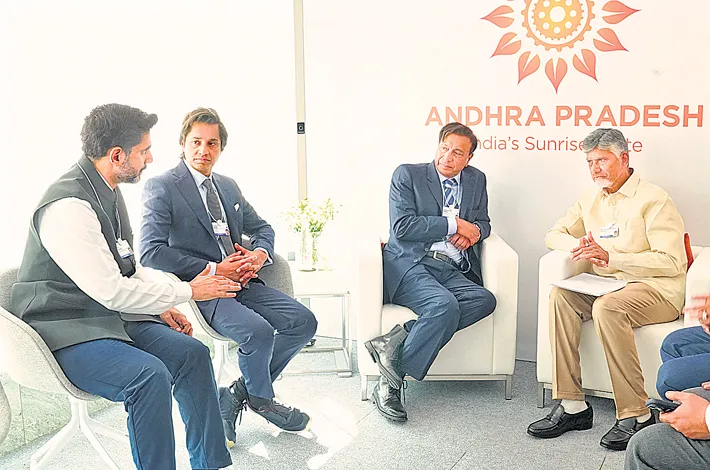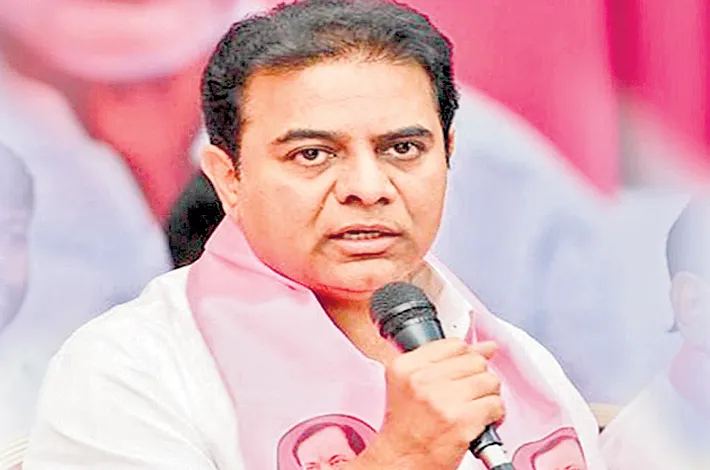Threads of Destiny
24-10-2025 12:00:00 AM

In the bustling lanes of old Delhi, where the air hummed with the scent of jasmine and sizzling street chaat, lived Meera, a girl whose heart was as unbound as the Yamuna's restless flow. At twenty-two, she was the epitome of quiet rebellion—eyes like monsoon clouds, laughter that echoed like temple bells. But beneath her carefree facade lay a cage: an arranged marriage to a stranger, orchestrated by her ailing father's dying wish. "It will secure us, beta," he had whispered on his last breath, his voice a fragile thread in the tapestry of their lives.
The wedding day dawned in a haze of vermilion and marigolds. Meera stood before the mirror, her bridal lehenga heavy as chains, the dupatta slipping like a noose. As the baraat's horns blared outside, panic clawed at her chest. She couldn't breathe this life of duty, of fading dreams. In a moment of madness, she fled—not to the streets, but to the railway station, boarding the first train to nowhere, her only companion a small brass locket with her mother's faded photograph.
The train rattled northward, through mustard fields and forgotten villages, until it screeched to a halt in Shimla's misty embrace. Meera stepped off, disheveled and penniless, her silk sari torn at the hem. Rain lashed the hills, turning paths to rivers of mud. Seeking shelter in a quaint hillside guesthouse, she collapsed at the reception, her story spilling out in sobs to the kind-eyed owner, Mrs. Kaur.
That night, as thunder rolled like a lover's distant promise, fate twisted sharper. A local newspaper, sodden and discarded, carried a tragic headline: "Young Widow
Lost in Storm—Family Seeks Help." The woman described bore an uncanny resemblance to Meera—same almond eyes, same cascade of raven hair. Her name was Madhu, drowned in the Beas River, leaving behind a grieving husband and a half-finished life. Mrs. Kaur, ever the matchmaker of misfortunes, saw opportunity. "Beta, take her name. Start anew. The hills hide many secrets."
Meera hesitated, the locket burning against her skin. But desperation whispered louder than morality. By dawn, she was Madhu—widow of Ravi Sharma, a quiet schoolteacher in the valley below. Mrs. Kaur arranged it all: a modest cottage, a fabricated tale of survival. "Love finds the lost," she said, pressing a cup of masala chai into Meera's trembling hands.
Ravi was a man sculpted from the mountains themselves—tall, with shoulders broad as pine trunks, eyes shadowed by loss. He taught history to wide-eyed children, his voice steady as the ticking of an old grandfather clock. Madhu's death had hollowed him; he moved through days like a ghost, tending their garden of hollyhocks and wild roses, whispering to the wind as if it carried her soul.
When Meera—as Madhu—arrived at the cottage, Ravi's gaze held no suspicion, only a flicker of bewildered hope. "The storm... it spared you?" he murmured, his hand brushing hers as he took her valise. In that touch, Meera felt a spark, illicit and alive. She nodded, throat tight, weaving half-truths about clinging to branches, washing ashore miles away.
Their first days were a delicate dance. Ravi cooked simple meals—aloo parathas steaming with ghee, shared over candlelight that danced like fireflies. Meera, unused to such gentleness, found herself drawn to his quiet strength. He spoke of ancient kings and forgotten queens, his passion igniting her dormant dreams. "History isn't dead ink," he'd say, tracing maps on the wooden table. "It's the echo of hearts that dared to love beyond their time."
Nights were harder. In the creaking four-poster bed, Meera lay awake, the locket her anchor to the girl she once was. Guilt gnawed at her like a winter frost. Yet, in stolen moments, love bloomed unbidden. One evening, as snow dusted the peaks, they walked the orchard path. Ravi paused beneath a ancient oak, its branches heavy with frost. "Madhu," he said softly, "I thought I'd lost you forever. But here you are, more radiant than before."
He pulled her close, his lips brushing her forehead, then her mouth—a kiss like the first sip of forbidden wine, sweet and searing. Meera melted into him, her deception dissolving in the warmth of his embrace. For the first time, she wasn't fleeing; she was found. Their love unfolded like the valley's hidden springs: tentative at first, then a torrent. Mornings tangled in quilts, afternoons lost in laughter over Ravi's clumsy sketches of her portrait. He called her his "phoenix," risen from ashes she never admitted were lies.
But secrets, like mountain echoes, refuse silence. One crisp afternoon, a letter arrived from Delhi—creased and urgent. Meera's brother, searching relentlessly, had traced whispers of a runaway bride in the hills. "Sister, come home. Father’s will demands it. The groom waits." Panic surged. How could she confess now, when Ravi's hand rested on her swelling belly—their child, conceived in nights of whispered vows?
Trembling, she slipped out to the riverbank, the same Beas that claimed the real Madhu. The water rushed, indifferent, mirroring her turmoil. Footsteps crunched behind her. Ravi, his face etched with fear. "I followed you. What's this shadow in your eyes, my love?"
Words tumbled out then—a flood of truth. The fake wedding, the train, the borrowed name. "I'm not Madhu. I'm Meera. A liar who stole your grief to mend her own broken heart." She waited for rage, for rejection, the locket clutched like a talisman.
Ravi stood silent, wind whipping his kurta. Then, slowly, he knelt, pressing his forehead to hers. "Names are but threads, Meera. Our love wove its own tapestry. Madhu was my past; you are my now. And this—" his hand on her abdomen—"our forever."
They returned to the cottage hand in hand, the letter burned in the hearth's glow. Meera's brother arrived days later, stern and unyielding. But Ravi faced him, voice firm as granite. "She is home here. With me. Take the dowry, the duties—leave us our destiny."
The brother relented, eyes softening at the sight of their quiet joy. As spring thawed the hills, Meera and Ravi stood on the porch, watching cherry blossoms drift like confetti. Their daughter arrived with the monsoons, her cry a melody of new beginnings. In the locket, Meera tucked a tiny curl of her hair beside her mother's photo—a bridge from past to promise.
Love, they learned, isn't a straight path but a winding trail through storms and secrets. And in the heart of the Himalayas, two souls, once adrift, had anchored each other—forever entwined in threads of destiny.








